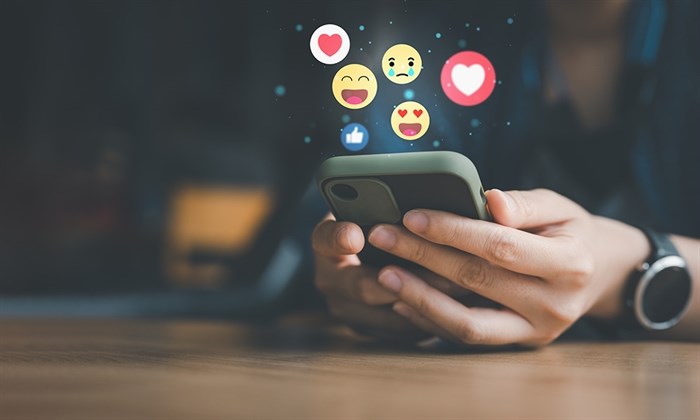
FILE PHOTO
Image Credit: UBC Okanagan
September 22, 2022 - 1:02 PM
UBC Okanagan researchers are sharing a new tool for academics to better understand emojis.
Thanks to a pair of UBC Okanagan colleagues, researchers striving to better understand emojis now have a new tool to keep pace with technology—what they call a multidimensional lexicon of emojis (MLE), according to a press release issued by the university.
Doctoral student Rebecca Godard and Susan Holtzman, psychology professor at UBCO, have published their findings in a new paper titled The Multidimensional Lexicon of Emojis: A New Tool to Assess the Emotional Content of Emojis. The research appears in the journal Frontiers in Psychology.
“As digital platforms evolve, strategies are also evolving to communicate emotion,” Godard said in the news release.
“We saw that early on with emoticons (precursors to emojis), but emojis have largely taken over that role of facilitating emotional communication. At the same time, research on emojis has lagged behind actual use. Researchers don’t have enough tools for measuring the way people use emojis and the emotions that they communicate.”
Researchers believe emojis contain hidden meanings and studying them will help them get the true meaning of the message.
Godard’s MLE can help researchers crack that coded language and the emotions behind it beyond simple negativity and positivity.
She analyzed three million Twitter posts and collected emotion ratings of emojis from 2,230 human raters to develop and validate the MLE.
This new lexicon consists of 359 common emojis rated on eight emotions (anger, anticipation, disgust, fear, joy, sadness, surprise, and trust) and the two broader sentiments (positive and negative).
“A substantial amount of online communication now includes emojis,” said Holtzman, who supervised the findings. “From market to mental health research, we hope this new tool will help everyone better understand the emotions of people communicating online.”
Godard saw the need for the MLE because human communication is changing and growing rapidly with social media.
“We know that the meanings of emojis change over time,” Godard said. “We also know how subtle teens can be, in their text messages for example, and how they tend to gravitate toward what’s new.”
To contact a reporter for this story, email Carli Berry or call 250-864-7494 or email the editor. You can also submit photos, videos or news tips to the newsroom and be entered to win a monthly prize draw.
We welcome your comments and opinions on our stories but play nice. We won't censor or delete comments unless they contain off-topic statements or links, unnecessary vulgarity, false facts, spam or obviously fake profiles. If you have any concerns about what you see in comments, email the editor in the link above.
News from © iNFOnews, 2022